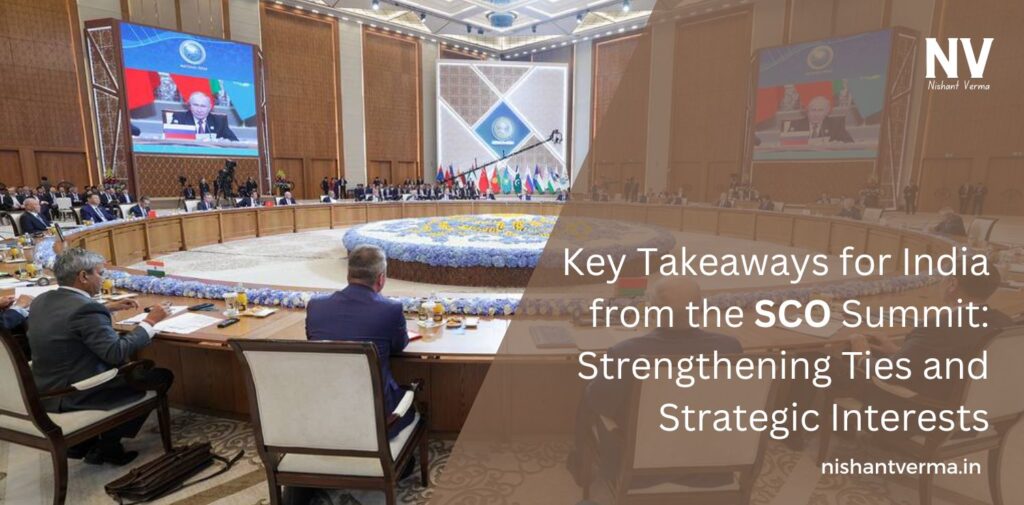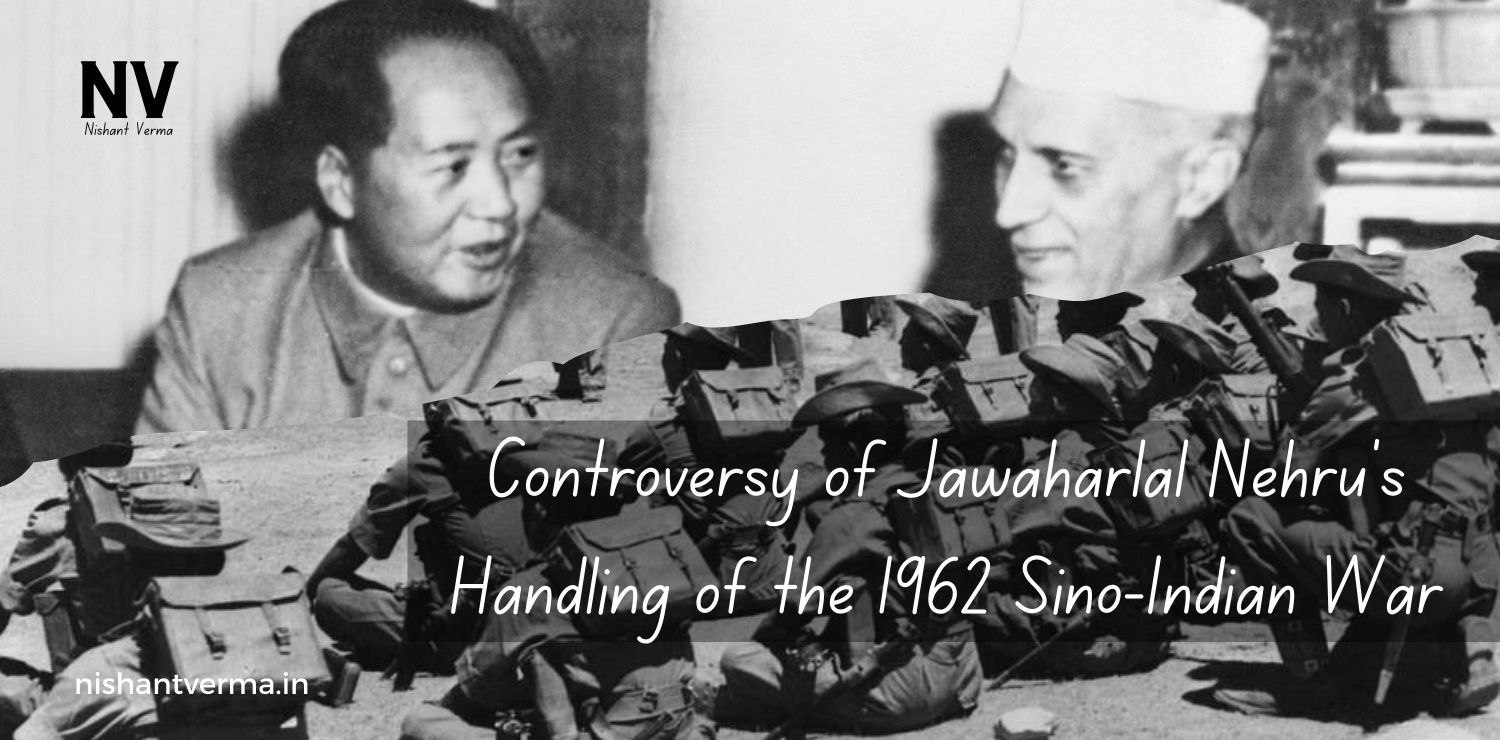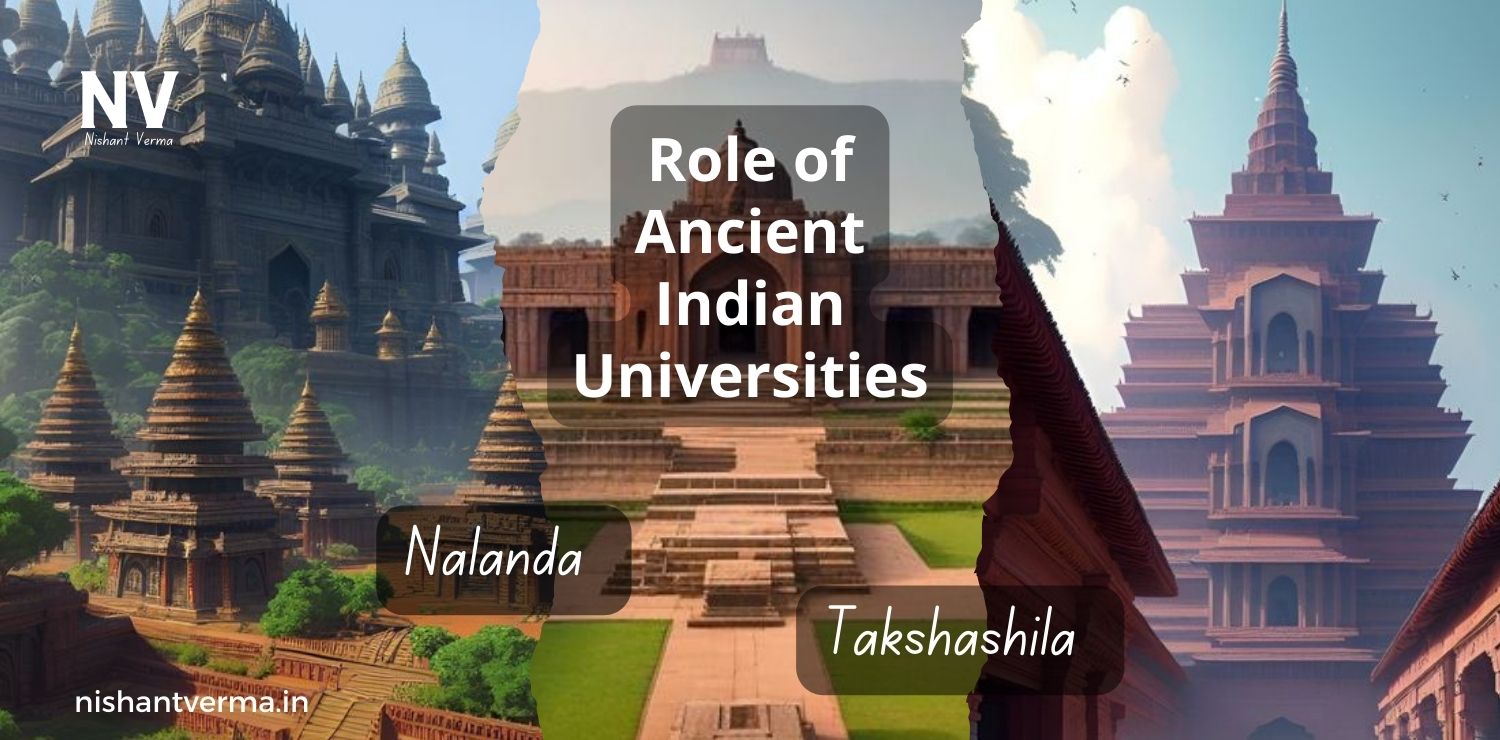India’s participation in the Shanghai Cooperation Organisation (SCO) summit, led by External Affairs Minister (EAM) S. Jaishankar, was marked by critical discussions on regional security, economic cooperation, and counterterrorism efforts. The SCO has become a crucial platform for India, given its vast geopolitical significance and India’s growing role on the global stage. Jaishankar’s articulate representation of India’s concerns and ambitions during the summit has not only reinforced India’s position in Eurasian diplomacy but also highlighted the country’s strategic approach to regional issues.
Here’s an in-depth look at the key takeaways from the SCO summit for India:
Reinforcing Regional Security
India has long emphasized the need for peace and stability in the region, especially in the face of rising extremism, terrorism, and separatism. The SCO summit presented a perfect opportunity for Jaishankar to address these concerns. India’s active participation in the Regional Anti-Terrorist Structure (RATS), a key component of the SCO, is aimed at fostering counterterrorism cooperation among member states.
Jaishankar’s speech underscored India’s commitment to collective security measures, calling for enhanced intelligence sharing and joint exercises to combat transnational threats such as terrorism, drug trafficking, and human smuggling.
India also pushed for a multilateral approach to tackling terrorism, urging member nations to avoid “double standards” and ensure that no country uses terrorism as an instrument of state policy. This aligns with India’s long-standing criticism of Pakistan’s involvement in cross-border terrorism, though it was not directly mentioned.
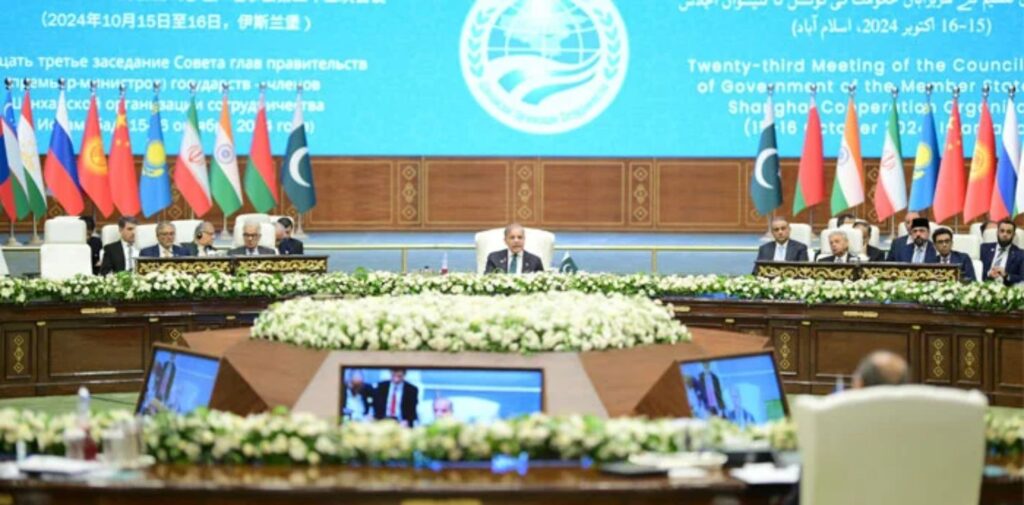
Economic Connectivity and Trade Expansion
One of the primary areas of focus for India at the SCO summit was economic cooperation. Jaishankar reiterated India’s stance on enhancing connectivity projects that respect sovereignty and territorial integrity. India has always expressed reservations about China’s Belt and Road Initiative (BRI), particularly the China-Pakistan Economic Corridor (CPEC), which passes through Pakistan-occupied Kashmir. While maintaining its opposition to the BRI, India emphasized the importance of alternative connectivity initiatives.
At the summit, India also discussed increasing trade with Central Asian nations, highlighting the International North-South Transport Corridor (INSTC) as a key route to foster trade links between India, Russia, and Central Asia. This would help India access untapped markets in the Eurasian region, potentially boosting its trade and economic presence.
Energy Cooperation and Climate Change
The SCO summit provided a platform for discussions on energy cooperation, where India’s need for energy security was central. Central Asia, rich in natural resources, is crucial for India’s energy diversification strategy. Jaishankar emphasized the importance of enhancing energy ties between SCO members to ensure stability in energy markets.
Additionally, India reaffirmed its commitment to climate action. With the global shift toward clean energy, India advocated for greater cooperation in green energy projects and sustainable development across the SCO region. Jaishankar’s address included a call for joint initiatives in renewable energy, clean technologies, and reducing carbon footprints, reinforcing India’s role as a global climate leader.
Strategic Engagement with Central Asia
Central Asia remains a key focus for India within the SCO framework. As a region rich in resources and of significant strategic value, India’s engagement with Central Asian countries at the summit was crucial. The SCO provided an avenue for India to strengthen bilateral ties with these nations, especially in terms of infrastructure development, trade, and cultural exchange.
India’s deepening relationship with Central Asia is vital to counterbalance China’s influence in the region, as China has traditionally had a larger footprint in Central Asian economies. The summit allowed India to reinforce its independent partnerships with these nations, advocating for more inclusive projects that could serve the entire region’s interests.
Countering China’s Influence
While India continues to navigate its relationship with China within the SCO, the summit allowed India to subtly counterbalance China’s growing influence in the region. India’s opposition to the BRI and its focus on alternative connectivity projects highlighted its stance on regional sovereignty issues. Jaishankar’s diplomatic efforts at the summit were geared towards fostering multilateral cooperation without letting China’s initiatives dominate the agenda.
Additionally, the inclusion of new members like Iran and Belarus into the SCO presents new dynamics, and India used the summit to ensure that its concerns, particularly regarding sovereignty and regional stability, are well-represented within the expanded organization.
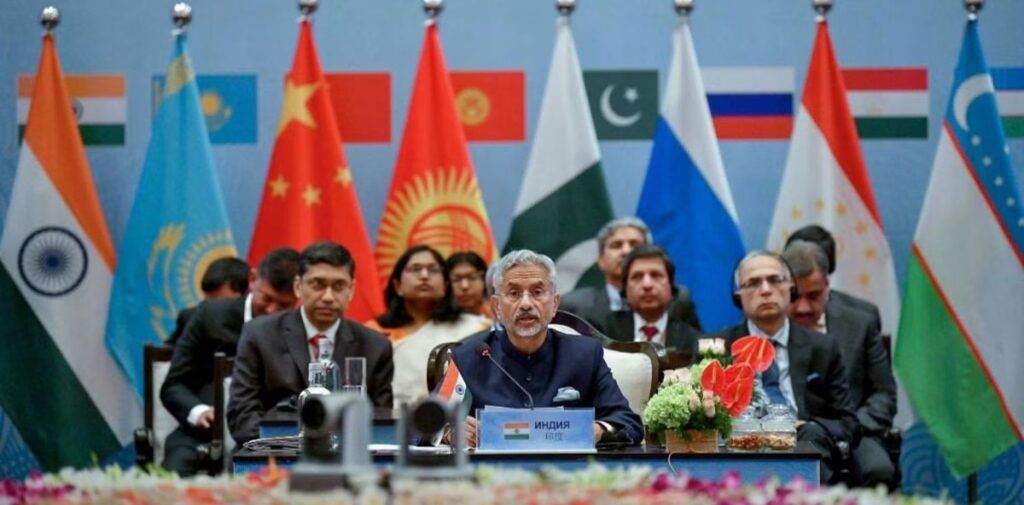
Expanding SCO’s Role in Global Governance
India’s role in the SCO goes beyond regional concerns. As Jaishankar articulated at the summit, India envisions the SCO as a significant player in global governance. India’s presidency of the G20 and its active role in various multilateral forums underscore its commitment to a rules-based international order. At the summit, India pushed for reforms in global institutions, advocating for more representation for developing nations in global decision-making processes.
This aligns with India’s broader foreign policy of seeking a more balanced global governance architecture, one that reflects the realities of a multipolar world.
Food and Health Security
Another key takeaway from the summit was India’s focus on food and health security in the wake of the COVID-19 pandemic. India emphasized the need for SCO nations to work together to strengthen supply chains, particularly in pharmaceuticals and essential goods. The pandemic exposed the vulnerabilities in global supply chains, and India highlighted the importance of self-reliance and collaboration to ensure food security across the region.
India also proposed joint initiatives to address public health challenges, drawing on its expertise in vaccine production and healthcare innovation. This reinforces India’s leadership in global health diplomacy, particularly through its vaccine diplomacy initiatives during the pandemic.
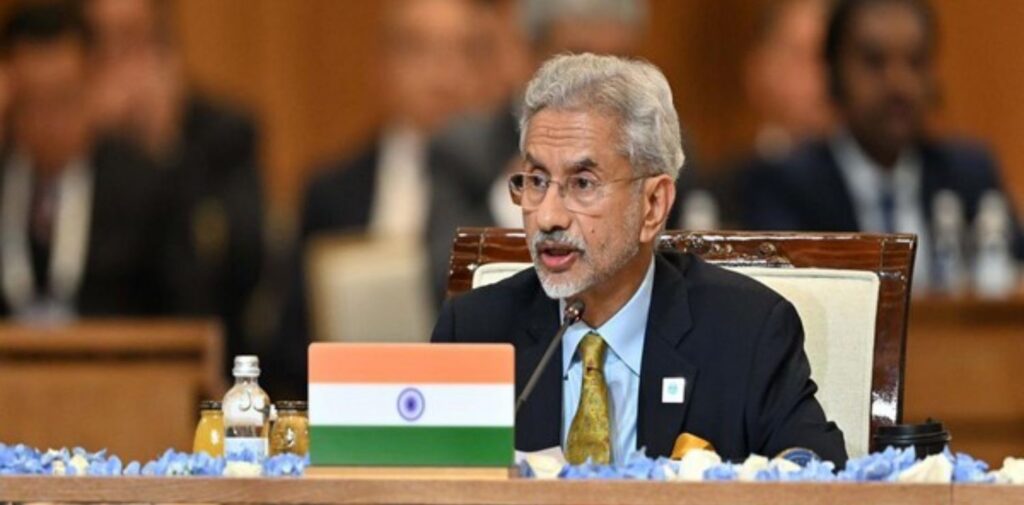
India’s Diplomatic Leadership: Praising Jaishankar’s Role
EAM S. Jaishankar’s deft handling of India’s position at the SCO summit garnered widespread praise. His speeches were marked by clarity, strategic vision, and a firm reiteration of India’s core concerns. Jaishankar’s ability to navigate complex diplomatic waters, particularly with China and Pakistan present, showcased his seasoned diplomatic skills. He effectively positioned India as a leader in multilateral diplomacy, advocating for peace, cooperation, and mutual respect among SCO members.
Jaishankar’s leadership has been instrumental in shaping India’s foreign policy in a rapidly changing global landscape. His emphasis on regional security, economic cooperation, and multilateralism reflects India’s proactive approach to global challenges. By promoting a vision of collective progress and shared security, Jaishankar has elevated India’s role in the SCO, ensuring that its voice is heard on key issues that matter not only to India but to the broader region.
Conclusion: SCO Summit
India’s participation in the SCO summit under the leadership of EAM S. Jaishankar marked a significant step in its foreign policy trajectory. The key takeaways from the summit underscore India’s focus on regional security, economic engagement, and counterterrorism efforts, all while maintaining its stance on critical issues like sovereignty and connectivity. As India continues to play an increasingly important role on the global stage, its active engagement in the SCO is a testament to its growing influence in Eurasian and global geopolitics.

